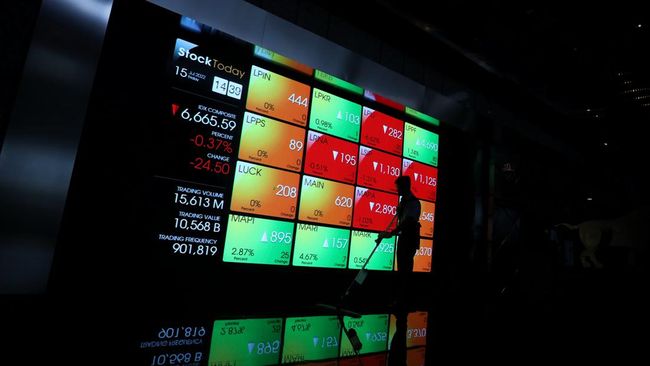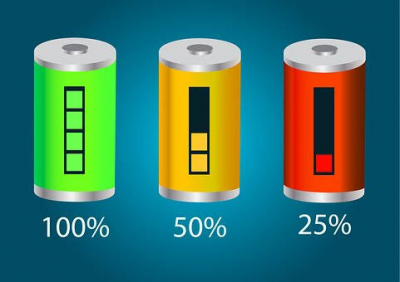Jakarta, CNBC Indonesia – The Composite Stock Price Index (JCI) this week is still not performing well. This condition was triggered by the issue of recession that always surrounds global financial markets, including Indonesia.
During the week, the country’s benchmark stock exchange index declined 1.31% point-to-point. On trading Friday (8/7/2022). In yesterday’s trading, the JCI closed down 0.57% at 6,651.9.
Throughout this week, the JCI still showed volatile movements, where in trading earlier this week alone, the JCI was down 0.27% at 6,722.14. Then last Thursday, JCI succeeded rebound and was up 0.74% at 6,690.08. With this, throughout this week’s trading the JCI is comfortably in the red zone.
ADVERTISEMENT
SCROLL TO RESUME CONTENT
–
JCI is trading in the range of 6,600-6,700. Until now, the JCI has not been able to touch its psychological zone at the level of 7,000.
During the week, the value of JCI transactions reached Rp 39.3 trillion. Foreign investors are recorded to still conduct net selling (net sell) to reach Rp 1.7 trillion in all markets this week.
Shares of PT GoTo Gojek Tokopedia (GOTO) plunged 8.57% in a week. Please note, GOTO shares have the largest weight for the JCI at 10%. GOTO is one of the stocks with the largest index weight. So the weakening that occurred in GOTO shares also triggered a correction in the JCI.
Furthermore, shares of PT Bank Central Asia Tbk (BBCA) with the second largest weight also weakened 2.1% in a week.
The majority of big bank stocks with large capitalization values also experienced the same thing. Within a week the shares of PT Bank Mandiri (Persero) Tbk (BMRI) fell 4.01%, PT Bank Rakyat Indonesia Tbk (BBRI) fell 2.14% and PT Bank Negara Indonesia Tbk (BBNI) fell 0.76%.
However, the shares of PT Telkom Indonesia Tbk (TLKM) were recorded to still gain 3.49% in the week. Furthermore, there was a share of the consumer sector, namely PT Unilever Indonesia Tbk (UNVR), which fell by l.23%.
At the same time, Wall Street’s disappointing performance has the potential to rub off on Asian financial markets. The downside risk from high inflation is becoming increasingly apparent.
The US economy is now on the verge of a recession. As the country with the largest economy in the world, what happens in the US can infect other countries.
Global economic conditions that are overshadowed by the risk of stagflation arising from high inflation, monetary tightening, geopolitical escalation between Russia and Ukraine and protectionist policies in various countries still make investors nervous.
Many investors are starting to reduce the portion of their investment in risky assets such as stocks, causing the price to drop. Opportunity exists outflows from the stock market is still open, as well as opportunities for correction.
CNBC INDONESIA RESEARCH TEAM
Next Article
Russia is the culprit, making these 10 big cap stocks fall
–
–
(aum/aum)
–


